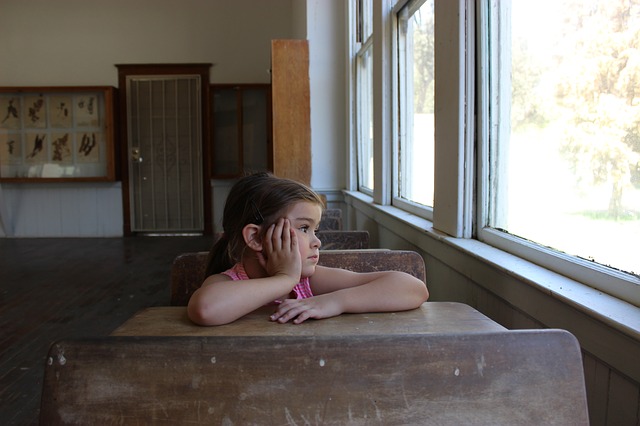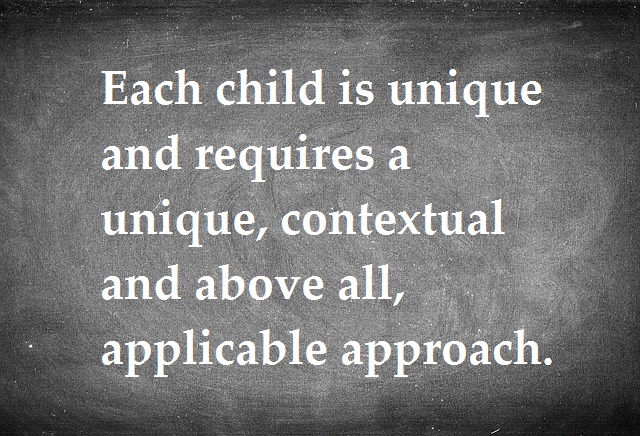Parents Teacher Meeting or Horror Show For Kids?
Parents Teacher Meeting or Horror Show For Kids?
PTM or Parent-Teacher Meeting, or a meeting for making the parents aware of kids’ progress, problems or both. That’s the ideal description of this interaction between parents and teachers. But of course, it’s not an ideal world. More often than not, PTM days are dreaded by most of the students and the parents alike. But they won’t really tell that disturbing fact to each other.
A regular monthly PTM gradually becomes the Complaint booth. Teachers sit on a desk, the parents are summoned one by one and the teachers take off! Your child needs to concentrate on this! Your child is not having enough focus for that! Such horrible handwriting! Your ward is too Talkative! And brace yourself for this one, your ward is asking to go to the toilet in the midst of the class!
Seriously, when would enough be enough? An interaction that’s supposed to be a counseling session at best and a gentle medium to discuss issues at worst has become something entirely different.
Let’s take a look at these real incidences, and the Grow4YourKids Parenting Style’s Perception of each, along with some dos and don'ts.

Incidence 1
The other day, while going to meet the teacher, I heard the parents of some of the older kids telling off their kids in disappointing tones, “You were doing this so well up to last year, but this year, you are just not paying attention,” “I’m so fed up of listening to all these complaints, I don’t understand why you just don’t really try improving.”
While I agree, there would be parents who might come out smiling, minds full of praises they’ve just heard for the beloved kids, most of our precious offsprings are just struggling with growth in general, day to day challenges, friends, and fights with friends, and for a little older children, let’s face it, the affairs, the secrecy and a lot more disturbing and sometimes dangerous scenarios. So obviously, more often than not, their performances would not be “up to the mark”, or they might not be utilizing their “full potential”.
There could be many reasons for this or absolutely no reason at all. But parents, in general, are not interested in reasons. They want results. Else it gets embarrassing. In front of their colleagues, social circle, friends and so on and so forth. We tell our kids it’s a harsh world. But, in all honesty, should we, the parents, be a thrilling teaser or first representative of that harsh world? Think about it.
If the teacher is full of complaints indeed, please listen to him/her carefully. Don’t frown or stare your kids then and there. And don’t scold them on the way back either. Reach home, have a glass of water and call your kids. Sit with them, and talk to them, as in, really talk to them. Try to understand the reasons. Maybe, the current teacher for the particular subject is not as great as the previous one. Maybe, the child is facing some genuine difficulties with certain complicated concepts. Solutions could be very simple, it’s just that our kids have not yet become self-sufficient, (although they may boast sometimes about the same :D ) and they might not be able to figure out the solution on their own.

Incidence 2
In a renowned school of a North Indian Cosmopolitan City, PTMs are infamous for paper tearing. Yeah, that’s right. In fact, make it notebook tearing. Little kids, who are still learning to write, go back with notebooks which are torn by teachers in front of the kids’ parents as the handwriting is not ‘neat’ enough. Or the work would be discarded by carelessly, rather cruelly striking off the work with a red pen. Parents are shouted upon for not paying enough attention to their kids' upbringing. They are harshly told about the dire consequences of being left behind. Other smarter kids notebooks are used as a reference and demeaning comparisons are made. In the words of one of the mothers, “The teachers successfully spoil the mood of the parents.”
While such a system and such teachers are a definite liability to the education system and society, the parents who just take this behavior as if it’s acceptable, rather expected, and let themselves and their kids be affected by it, are not completely blameless.
If you ever encounter such teachers, and they happen to shout at you, just ignore the volume and continue to converse reasonably in a gentle tone. If required, talk to your child in front of the teacher, while all the time maintaining the same cool. In fact, smile if it’s at all possible in the given situation. Your smile will diffuse much of the show of anger and disappointment. You should also show, with a very sure manner, that your child’s welfare, growth, and happiness are your top priority, much above some certain perceived notions of scoring based success.
More importantly, be careful that such encounters should not affect your post-PTM counseling session with your kids in an adverse manner.

Incidence 3
One of the kids in I Standard got the top grade in a subject in the Six monthly exams. The mother went to meet the subject teacher. She was, of course, expecting a smiling teacher and some words of appreciation too, hopefully for her daughter. She told the teacher the name of the child, who was standing with her in person. The teacher said, “The children just don’t take an interest, they don’t want to put in any effort…”
The mother, exasperated by now, interrupted her, “But Ma’am (Showing her mark-sheet), she’s got the top grade in your subject!”
“Oh yeah, sorry, yeah, yeah, she is brilliant actually, has been doing very well…” (Bla, Bla, Bla)
And was it really the fault of the teacher? Imagine this. You meet and get introduced to 47 new students, and then there are holidays, celebrations, absenteeism and leaves. It’s human to forget the association of faces with names. Unless you have a personal connection with the kids, which the current system does not allow.
But above all, we as parents have to understand, that such teachers and even others, who might not have as bad memories, don’t, rather can’t understand our kids, and their words are not final. We should listen to the feedback for sure, but not get carried away into believing that anyone’s role or understanding or caring can be better than what we can provide to our unique child, with our unique, appropriate, contextual and above all, applicable approach.




Comments (Facebook)